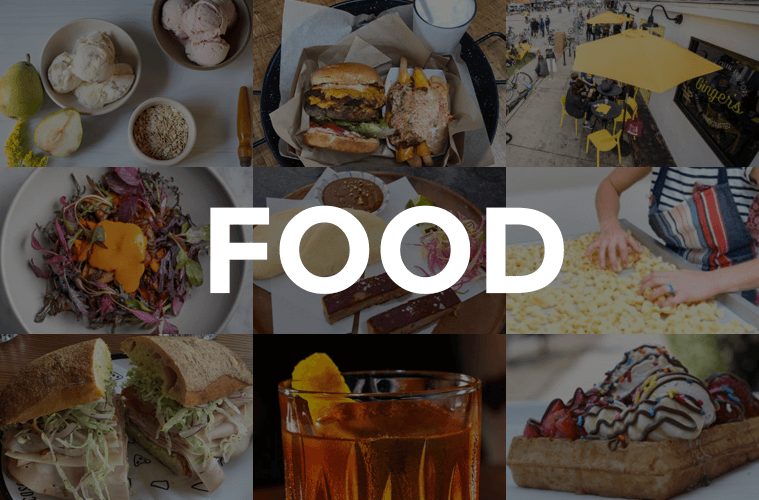Photo by Anne Fishbein
ON A STRETCH OF TEMPLE CITY Boulevard crowded with fancy cake parlors and Chinese bridal boutiques, the busiest corner at lunchtime belongs to the Chinese noodle shop Dai Ho, its sidewalk thronged with people waiting for one of the few tables to open up, its parking lot filled with late-model Lexuses and the posher Mercedes sedans. This part of the San Gabriel Valley may be thick with noodle houses and Taiwanese delis, Mandarin-speaking outposts of seaweed salad, pressed tofu and steaming bowls of dan dan mien, but a special niche is occupied by Dai Ho’s spicy beef noodle soup, an angry red brew spiked with chopped herbs, golf ball–sized chunks of long-simmered meat and noodles — long, slithery, linguine-thick noodles, disarmingly soft, that like all the best pasta seem to have mastered the trick of appearing almost alive. Beef noodle soup is a fairly common specialty in this neighborhood, and a few other restaurants even specialize in the stuff, but Dai Ho’s version is on a plane of its own, a dense, stinky taste of Valhalla.
If you have heard of Dai Ho at all, it is probably (rather unfairly) as the home of the “noodle Nazi,” a demanding owner who insists that his customers enjoy his food his way or not at all, in the manner of the famous “sushi Nazis” at Sasabune and Nozawa and Manhattan’s “soup Nazi” Al Yeganeh, as made famous on Seinfeld. Posters at www.chowhound.com have made a fetish of the man’s supposed short temper.
I have never known the owner, Jim Ku, to be anything but courtly and kind, but even some of the regulars are supposedly cowed by his manner, which can occasionally tend toward the brusque. But given the excellence of the spicy beef noodles, the noodles with pork and bean sauce, and the cold noodles with sesame, if I were a regular, I’d fear being cast out of the restaurant too.
The protocol at Dai Ho is well-established. When you walk into the restaurant, you must pause for a moment while Mr. Ku chooses a specific table for you to sit at, you must scan the menu board (unless you have been here so many times that you have memorized it), and you must take at least a casual survey of the cold dishes that line the deli case at the far end of the room — a dish of potherb sautéed with pork, say, or peanuts fried with tiny anchovies, or Chinese pickled cabbage. When Mr. Ku comes over to take your order, you are expected to know what you want, although you are allowed to ask about the day’s specials. (I like the spongy blocks of red-cooked tofu that take on the color and some of the richness of freshly baked gingerbread.) He may allow you to order a little plastic container of pork with pickled vegetables or a package of simmered duck wings, or he may indicate that the items are only available for takeout. He will definitely allow you to have a giant stewed chicken leg or the house-special cold appetizer of spicy tripe, pressed tofu and sliced pork shank, which is delicious.
He will probably quiz you on your ability to tolerate his kitchen’s liberal use of chiles, but while Mr. Ku is happy to adjust the heat of his noodles with ground pork and bean sauce, the beef noodles are available only hot — not Thai-food hot, perhaps, but sluiced with enough of the house’s chile oil to give the dish a warm buzz.
Oddly, the only un-translated menu item is a bowl of plain chicken noodle soup, concentrated and nicely herbal, but clearly not part of the restaurant’s general program.
“It’s good for old women,” he says. “And possibly old men. Not for you.”
To be fair, Dai Ho is probably not a restaurant of universal appeal. The sourish funk and slippery textures in the beef noodle soup are frank, unadjusted to any idea of the American palate, and the lean austerity of the pork-bean noodles is in stark contrast to the lushness of the Shandong-style version you may have experienced at Chinese restaurants catering to Koreans. What Dai Ho does is closer to the Chinese home kitchen than to the chopped and channeled cuisine of a place like Mandarin Deli, and I suspect that it is the intimacy, the hominess of the food, that makes it so popular. The comparison may be pushing it a little, but in some ways Dai Ho on a Sunday afternoon reminds me of a bistro like Benoit in Paris, an affluent crowd grouped three generations to a table; grandmotherly cooking playing to an audience of actual grandmothers.
Dai Ho Kitchen, 9148 Las Tunas Dr., Temple City, (626) 291-2295. Open for lunch Tues.–Sun. 11:30 a.m.–3 p.m.; dinner, takeout only, Tues.–Sat. 3–6 p.m. Cash only. No alcohol. Lot parking. Lunch for two, food only, $11–$18.
Advertising disclosure: We may receive compensation for some of the links in our stories. Thank you for supporting LA Weekly and our advertisers.

